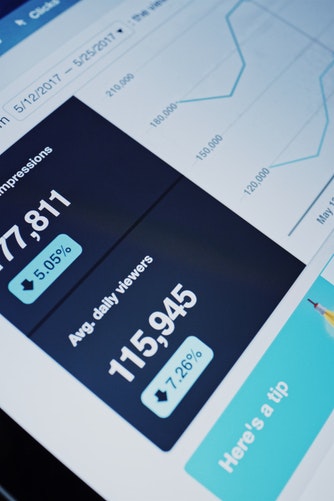The longtime debate in digital marketing has been argued over the effectiveness of Facebook Ads vs Google Adwords. The two platforms share many similarities in both their functionality and results, however each includes unique options for targeting your audience, tracking your success, and managing your campaign. While everyone should be using both to maximize potential reach, it is important to know the specifics so that you can give preference to the option that best suits your needs as a business, ensuring that your advertising budget is well-spent. Let’s take a look at some of the basic differences between Google Adwords and Facebook Ads:

|

|
|
| Facebook is the world’s largest social network, with 43.8% of all internet users registered. Facebook Ads operates on a “paid social” model, which helps users find businesses based on their personal interests and online behaviors. Advertisers can target users based on these attributes, and they choose a daily/weekly budget that Facebook charges them for when the campaign hits a specific dollar threshold amount. Advertisers using Facebook Ads also bid to compete with other advertisers attempting to reach the same audience. | Google has the largest reach of any internet platform. With around 90% of all internet users actively searching Google, the potential reach is unrivaled. Google Adwords uses a PPC or “pay per click” model, which means that each time someone clicks on an ad, the advertiser is charged a specified amount of money. To get their ads in front of Google users, advertisers bid on keywords and phrases. When users search for these keywords, the ads are displayed alongside the search results. |
Now that we have covered the basic differences between Facebook Ads and Google AdWords, let’s take a look at the targeting options each service provides. These options determine how specific of an audience you can target via each advertising platform.
Facebook Ads allows you to customize your target audience based on:
- Location
- Age
- Gender
- Relationship Status
- Education
- Job Title
- Interests/Hobbies
- Other “Liked” Pages
- Behaviors (Likes, Devices Used)
Facebook also allows you to create a lookalike audience based on similarities to your current customers. This is powerful because it not only draws information from the people who currently “like” your page, but also allows you to upload your own customer data, matching it with Facebook users who share similarities to the customers who aren’t currently following your page.
Google Adwords allows you to customize your target audience based on:
- Location
- Age
- Gender
- Parental Status
- Language
- Keywords
- Negative Keywords
- Devices Used
Audience customization is where Facebook seems to shine over Google. While Google Adwords focuses mainly on keyword searches, Facebook can narrow your audience down to a much more specific demographic by including attributes like interests and other “liked” pages.
The effectiveness of mobile advertising is a legitimate concern for many businesses seeking to increase the effectiveness of their digital marketing. Let’s take a look at the differences between Facebook Ads’ and Google Adwords’ mobile advertising options.
Facebook Ads:
- Optimizes Ads for IOS and Android mobile devices. Unlike Google Adwords, which only allows for up to three-lines of text, Facebook advertisements generally rely on images and videos to get the message across. It is important that these types of ads are formatted correctly to be viewed on mobile devices so that they look as good as possible.
Google Adwords:
- Allows advertisers to select a budgeting ratio for mobile and for tablets. This separation can be crucial in certain types of ad campaigns. Also, 46.8% of Google ad revenue comes from mobile devices, as opposed to 21.7% for Facebook.
To conclude the debate, there can never be a clear winner. Facebook Ads and Google Adwords should be used in partnership to make your advertising campaign effective from all angles and each can be more useful in different situations.
Facebook is a great tool for targeting a very specific audience, increasing brand awareness, and generating leads for your business. It is much more useful for businesses directly seeking out consumers than it is for business to business companies.
As for Google Adwords, the cost per click is typically higher than Facebook’s, but the click-through rate is also significantly higher. Google Adwords is best used for generating immediate sales.
If you want to learn more you can check out “Who Wants To Do Facebook Marketing Like A Pro?” Or “New To Social Media? Are You Doing It Right?“. Are you currently running digital marketing campaigns? Drop us a comment below to let us know how your business uses Facebook Ads, Google Adwords or both.



